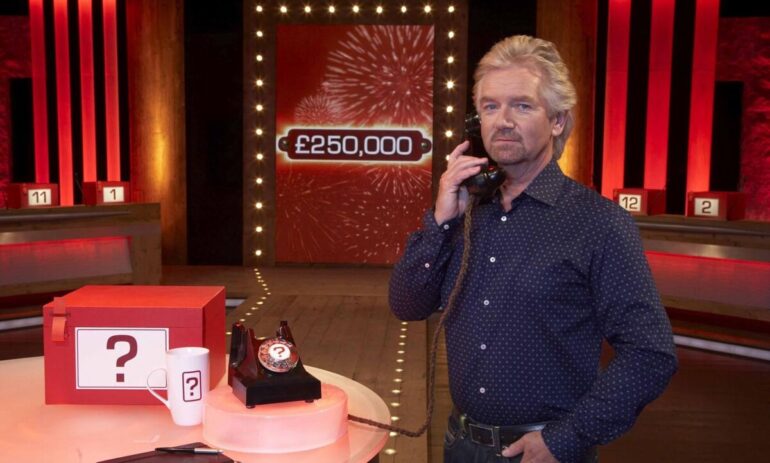Great video games don’t always make the greatest TV show, and great TV shows don’t always make the best video games. Not that this fact has, over the years, stopped marketeers and cash-hungry executives from trying to cash in on their property’s cresting notoriety or success by adapting it for any medium they can find. Where would The Simpsons be without the novelty sock market?
Sometimes a video game tie-in to a popular series is a perfect opportunity to expand on the lore of the original and allow players to interact with their favourite characters in a new and innovative way. Telltale Games’ The Walking Dead and Game of Thrones, for instance, were successful examples of transposing a strong narrative concept into a more interactive medium.
Unfortunately, for every Simpsons: Hit and Run or Stick of Truth, there are about a dozen poorly-conceived, ill-thought out and downright lazy tie-ins designed to cynically exploit the success of a beloved TV show purely to make a quick buck. With that in mind, here are 10 of the worst TV to video game tie-ins.
1. ATHF: Zombie Ninja Pro Am

The one thing that could possibly excuse ATHF: Zombie Ninja Pro Am’s abject awfulness is its apparent self-conscious awareness of just how bad it is. As you might expect from a game based on an irreverent Adult Swim cartoon, Zombie Ninja Pro Am doesn’t take itself too seriously as a gaming experience. That said, the fact that ATHF: ZNPA sets out to be bad doesn’t mean you’ll have felt any happier knowing that you parted with real human money to play such a shoddy piece of rubbish.
There are some funny moments, and the fact that the original series cast is committed to yet more nonsensical hijinks might be enough to entice the most dire-hard or completist ATHF fan, but even so it’s not a patch on watching the show. The game bills itself as a mishmash kart racer / fighting game / golf simulator, presumably a parody of most tie-in games’ predilection for trying to do a lot of genres exceedingly badly, and the effect is certainly well-realised, because every section is just awful.
Each level is an increasingly clunky, unresponsive and frustrating mess interspersed with cutscenes which only seek to provide basic fanservice to the only people mad enough to buy the thing. If you like Aqua Teen Hunger Force, just watch the damn show instead.
2. Deal or No Deal: The Banker is Back
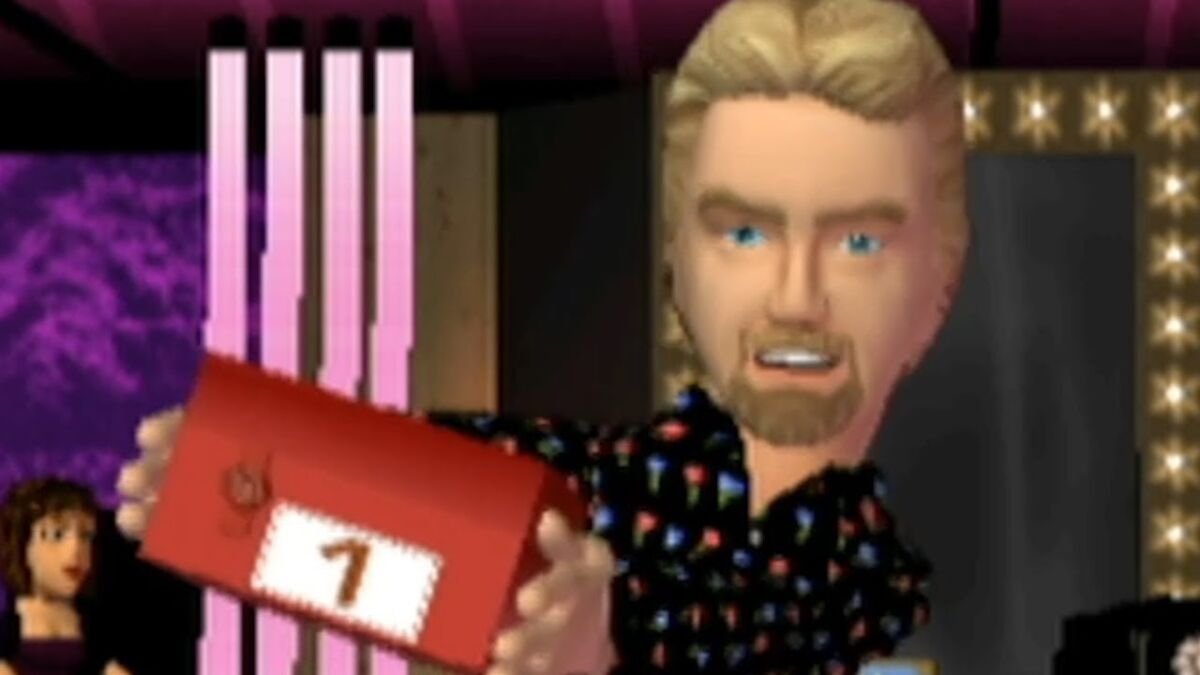
Nintendo really did put out some rubbish on the Wii. Confectionary-based Mario Kart knock-off M&M’s Kart Racing and unlicensed Harry Potter emulator Billy the Wizard spring to mind as some of the console’s most striking landfill-stuffers, but even these struggle to match Deal or No Deal: The Banker is Back’s cheapness, blandness and overall levels of somniferous boredom.
One of the main problems with the game is the original idea on which it’s based. Deal or No Deal, in case you’re unfamiliar, was a game show which revolved around the cosmic forces of chance, a bland procedural format which involved players slowly eliminating a series of cash values, contained in boxes for no logical reason, so as to ascertain the value of their own box’s potential sum, all while being propositioned by a mysterious banker who communed solely with Noel Edmonds as though he were a medium in a branch of Barclays.
The show involved almost no amount of skill, despite Edmonds’ constant attempts to inject a sense of theatrical drama into proceedings and claiming that this was actually a process which required a great understanding of things like ‘elemental forces’ and goodness knows what else, and the game doesn’t deviate from the original formula’s random cosmic recipe of arbitrary box selection. This essentially means that the Wii experience is just another random game of chance, but without the potential reward of actually winning a large cash prize, the fun of being on TV or the chance to lunge wildly at Noel Edmonds when he says things like ‘Dream Factory’ or ‘life-changing sum.’
It is a miserable, turgid affair which you’ll get bored of after your third run through. If they’d made a Deal or No Deal game that involved setting fire to Noel’s beard with a blowtorch, I might have been interested.
3. Duck Dynasty – The Game
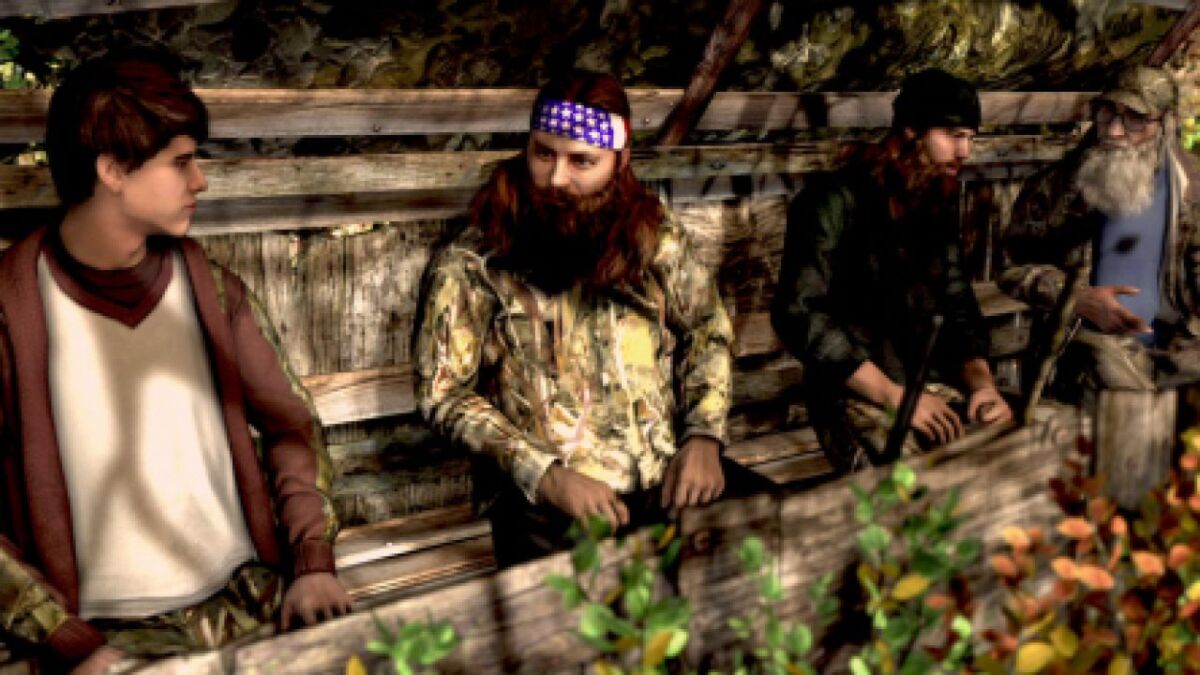
I know that it’s hypocritical as a meat-eater, but there’s something about a show which revolves purely around a bunch of bearded men in camo gear hunting innocent waterfowl that makes me weirdly uncomfortable. Despite the admirable sentiment of self-sufficiency and oneness with nature, shows like Duck Dynasty always seem to tap into my preconceived prejudices of men with extreme conservative viewpoints in pick-up trucks decorated in Union flags shooting anything within a 2-meter radius with 12-gauges. It’s no surprise that a game based on the concept of spending any extended period of time in the company of said burly Southerners doesn’t sound like my idea of a good time. I’d rather be one of the ducks.
Thankfully, Duck Dynasty is not the sort of game that you’re going to have to play for very long. While it may be frustrating whenever most of your friends are clamouring to jump onto something you don’t have much interest in, like Fortnite or Call of Duty, there was never much call for getting the lads together online to take pot-shots at unsuspecting mallards.
The game was pretty much universally panned on release owing to its shoddy graphics, poor voice acting and the repetitive nature of the missions, and anyone still talking about it usually does so only for the purposes of criticism and mockery. It was, in summary, a lame duck.
4. EastEnders
There are some things in life which make your mind boggle. The endless expanse of space. Avocado bathroom suites. Every winner at the Brit Awards for the past 20 years. But what really stretches the human capacity for credulity is the fact that in 1987, Macsen Software decided that publishing a game based on London-centric soap EastEnders and charging nearly £10 was a sound business move.
Needless to say, it didn’t go particularly well. An authentic representation of the miserable urban drudgery of London’s East End would’ve been bad enough if the graphical capabilities of any console or device had been up to it back in 1987, but given the best the Spectrum could muster was a couple of primitive, Ceefax-style lines, dots and squares all set on an ominous black background, most games could’ve been set literally anywhere. You could’ve called the EastEnders game Terraforming Mars or Tidying My Uncle’s Basement and things would’ve looked exactly the same.
Even if the technology had existed to reproduce England’s most famous fictional square, it’s hard to conceive exactly what the game would’ve done to replicate the mundane, morose and unhappy lives of the show’s inhabitants. Why would anyone want to actually take charge of such a parade of misery, and how do you condense what is in essence a five-day-a-week episodic soap drama into a satisfyingly rounded gaming experience with a beginning, middle and end? In short, you can’t, and they didn’t.
In the end, the EastEnders game didn’t bother trying to tie things in with the series, instead opting for some of the most arbitrary and nightmarish ‘levels’ in gaming history, with tasks ranging from having to feed a baby seemingly wearing the face of Johann Sebastian Bach to cutting some flowers in a sort of nuclear wasteland. No level where you try to avoid talking to Dot Cotton, no Ian Beale breakdown simulator, no pubs burning down or fatal drug overdoses or illegitimate children being discovered. What a let-down.
5. Golden Balls
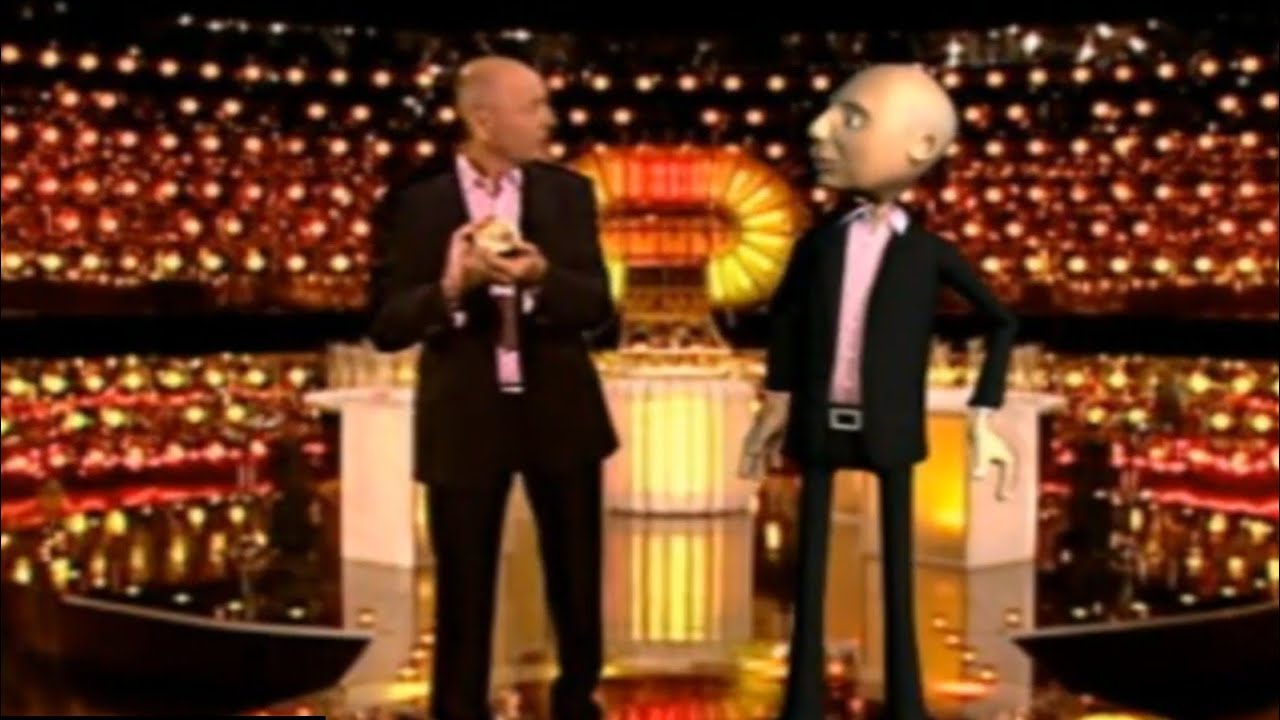
Does anyone remember Golden Balls? Does anyone outside of the UK even know what Golden Balls was? Does anyone care?
In short, Golden Balls was a game show which aired in the UK during the late Noughties which involved contestants avoiding elimination by pretending that they had certain monetary values hidden inside their balls, so to speak. It was like Deal or No Deal but with more active contestants, less Noel Edmonds and more cheap wordplay involving allusions to testicles.
At the climax of each show, the two remaining contestants could choose to split the prize fund or attempt to steal the lot if the other player chose to split in the most callously entertaining realisation of The Prisoner’s Dilemma ever broadcast on television. Needless to say, it led to a lot of incredible moments, and a few urban legends about contestants being murdered for their conniving, ball-grabbing ways.
If that all sounds like it had the makings of a great Nintendo Wii game, it didn’t. There are the usual gripes about the game being underdone and underdeveloped, the dialogue options being insanely limited and all of the player avatars looking like Jim Henson rejects rescued from a nuclear dumping ground, but once again the main problem was that concept of the original show simply wasn’t strong enough to justify building an entire game around it.
As Golden Balls essentially boils down to about two elements of actual gameplay, i.e. the elimination rounds and then the final, there’s nothing else to add to proceedings. There are no Crystal Maze-esque puzzles or general knowledge questions or any of the endless fun of rearranging letters that the British seem to find so diverting. As was the case for Deal or No Deal, once you’d play through a few times, the balls had started to lose their lustre.
6. Jackass: The Game
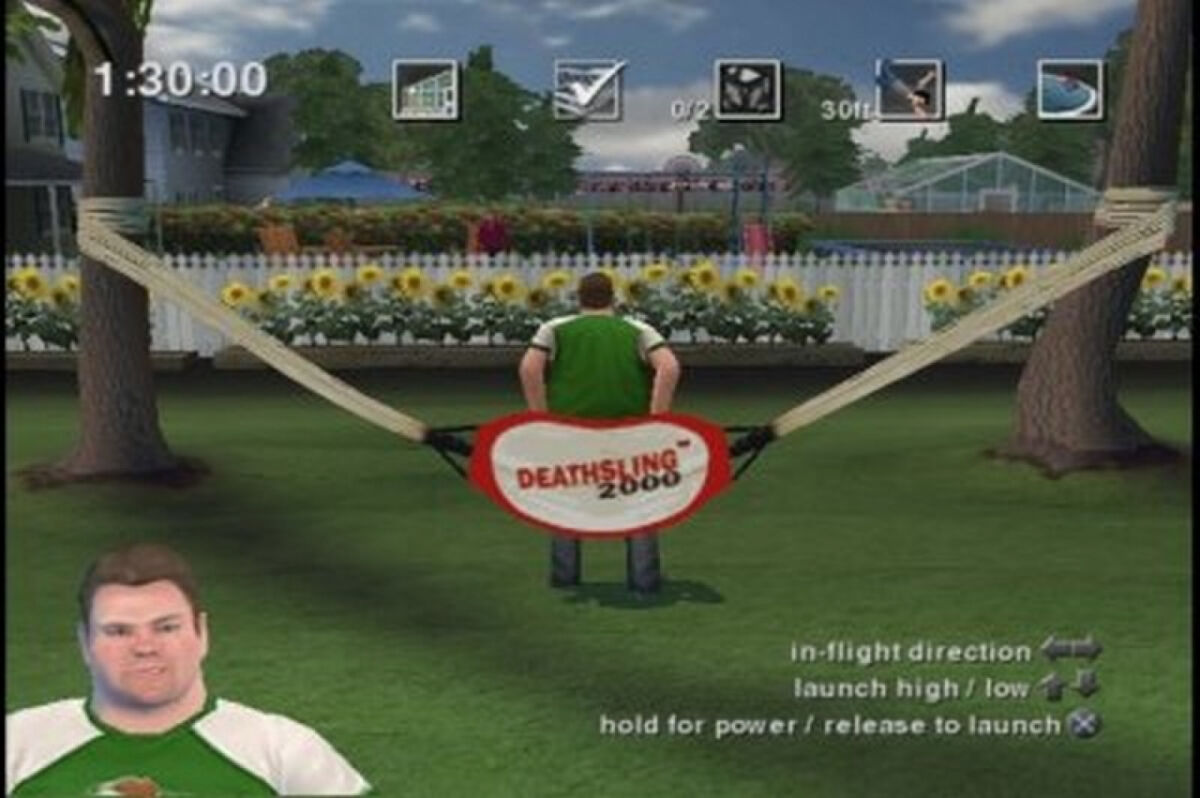
Like most impressionable kids of the early-2000s, I loved Jackass. Yes, I watched for the stupid stunts and the pranks on unsuspecting members of the American public, but what really made the show work was that the Jackass lads were a likeable bunch of miscreants. You wouldn’t necessarily invite them to your nephew’s Christening for fear of them vomiting in the pulpit or stapling their testicles to the pews, but it was always nice to observe the weird sense of camaraderie that came from nine 20-somethings whack each other in the groin or throw themselves off tall buildings.
The problem with Jackass: The Game is that those more interesting elements of the show are rather lost when rendered onto the PS2, reducing proceedings to merely seeing how badly you can injure its protagonists before you yourself feel queasy. Despite the premise apparently being about directing stunts for a new series of the TV show, the game seems instead to indulge in a pathological love of injuries, detailing the extent of each contusion and fracture with disturbing amounts of glee.
What’s worse is that even if you were the sort of person who only watched Jackass in the hope of seeing a mandible come off or a few lungs being punctured, none of that same sense of jeopardy or reward is present when transferred to a different medium. Having some poorly rendered PS2 avatars performing stunts soon loses its novelty because there’s no jeopardy that they actually might be in any real danger. Add to this the thin gameplay elements of most of the mini-game ‘stunts’, and Jackass: The Game soon loses its appeal.
7. Little Britain: The Video Game
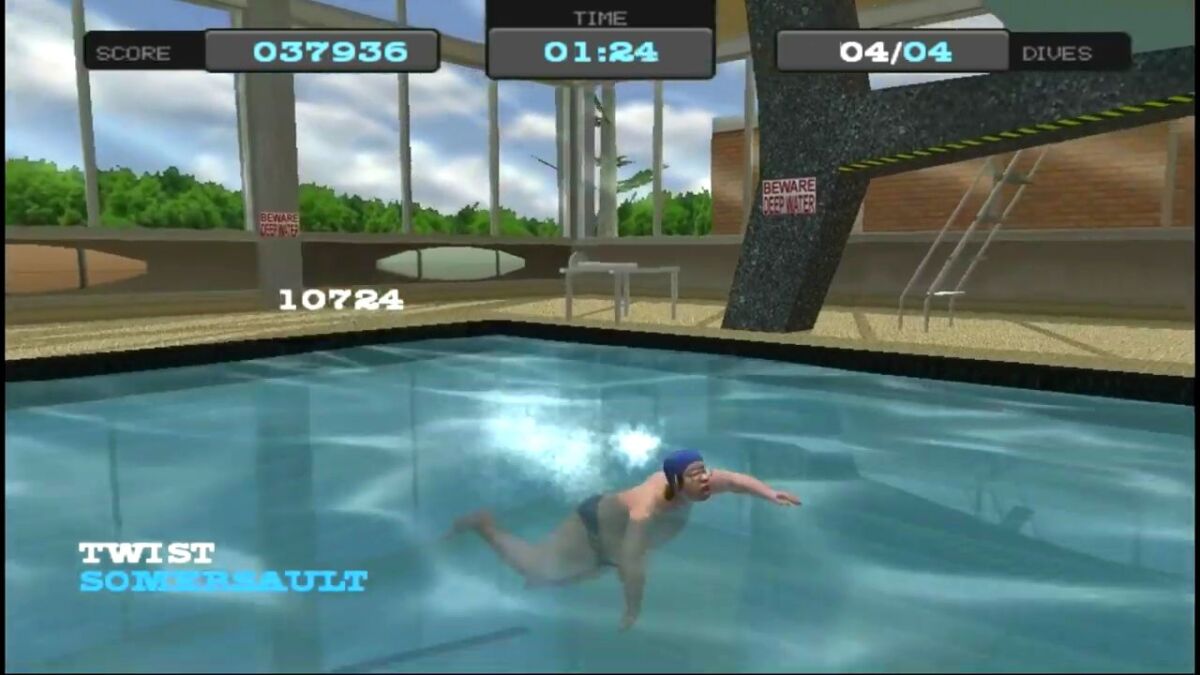
The worst TV tie-in of all time? Maybe even the worst video game of all time? What’s not for debate is that Little Britain: The Video Game remains a complete disaster from start to finish, decried from all corners of the industry as being as enjoyable as eating your own fingers.
Little Britain: The Game epitomises everything that’s wrong with the tie-in as a concept, in that it can find no way to actually tie-in the plots, characters or devices used by the original TV show into its mechanics. Instead, the game relies on a series of shallow, badly conceived minigames with only the slightest aesthetic nods to the show as justification for what is essentially a cynical and lazy cash-grab.
‘Levels’ include a disgraceful Vicky Pollard rollerblading simulator, a Pacman style eat-‘em-up thinly disguised as a ‘Fat Fighters’ biscuit eating simulator, a fairground smash the rat thing involving delinquent frogs, and a host of other appalling wastes of time and pixels designed only to bore, irritate or bemuse. The graphics are appalling, the mechanics are medieval and the game has so little depth and polish you’ll be astonished anyone actually let it leave the production line.
8. Lost: Via Domus
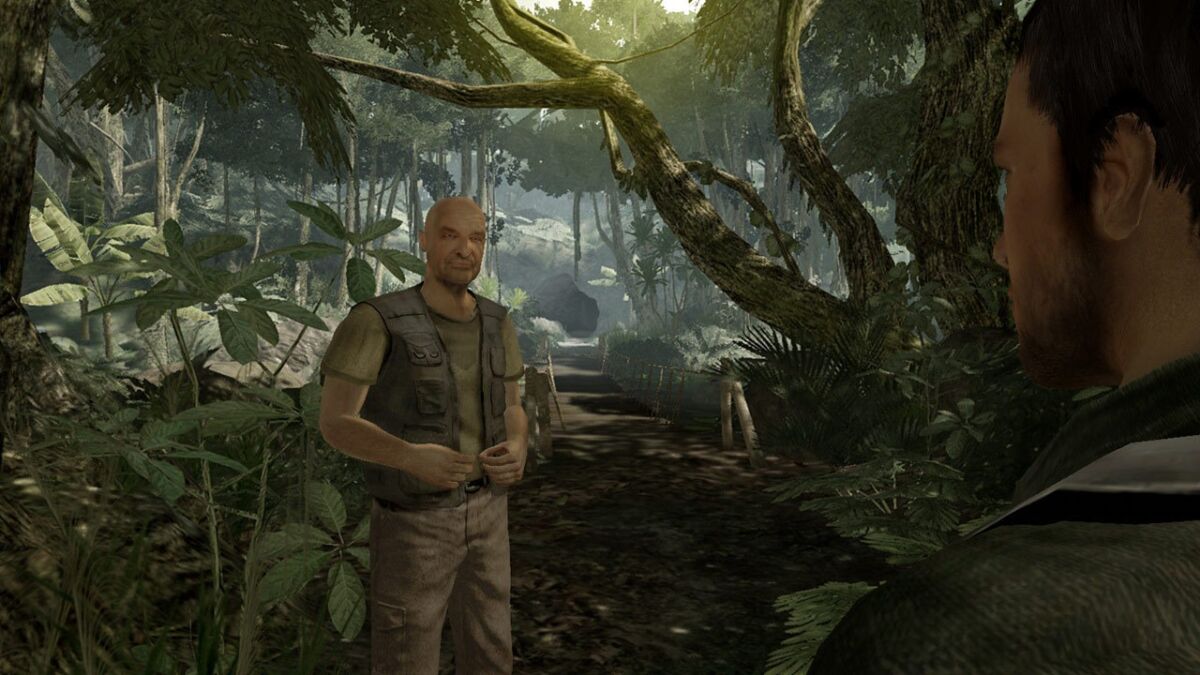
Lost: Via Domus is a game made for the fans. Like the show which spawned it, it’s often deliberately and frustratingly opaque, showing no interest in trying to appeal to those of us who didn’t spend the necessary time doing their homework about what the numbers mean and why did the plane crash and how come Hurley hasn’t lost any weight despite being stranded on a desert island for months on end?
The problem is that as fan-service games go, Via Domus is distinctly average. The voice acting is poor, and ironically enough jars with players who had been hoping to hear more from their favourite actors from the ABC drama, the graphics are shoddy even for the time, and the game is so short that you’ll feel short-changed even if you did happen to be enjoying its mediocre offerings.
It’s not as bad as some of the entries in this list, and the idea of basing a game on a series like Lost does make a degree of sense, but Via Domus can’t quite overcome its deficiencies to offer something truly satisfying.
9. Pimp My Ride
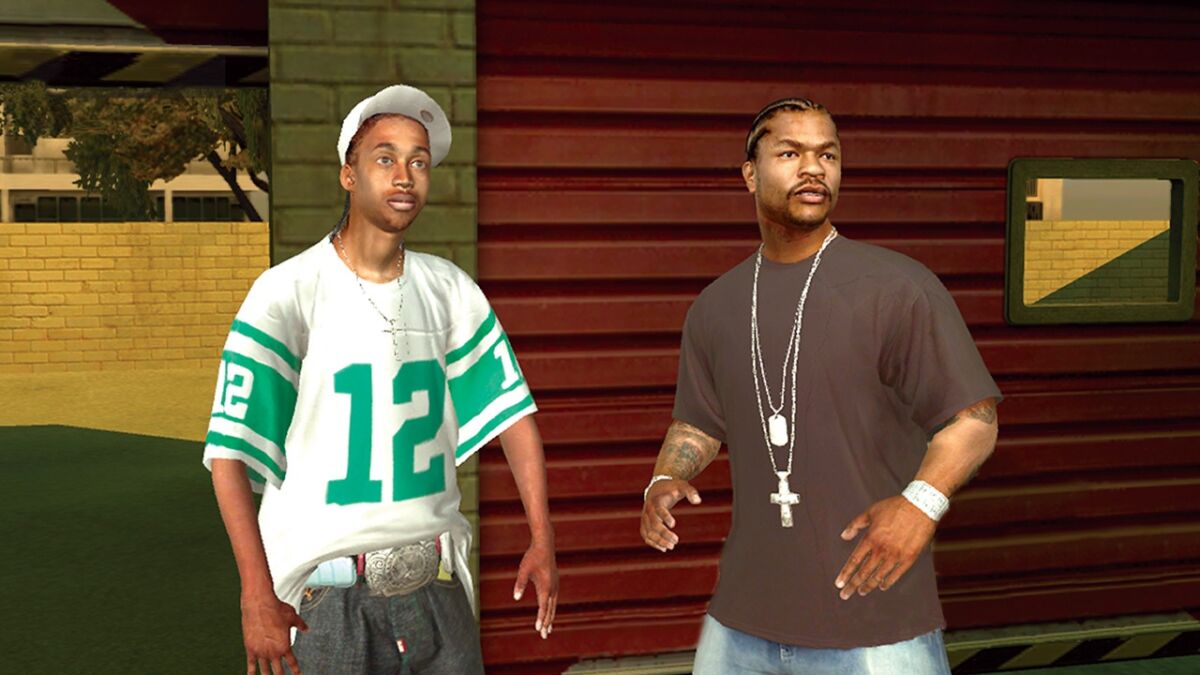
I can nearly understand the logic that went into making a Pimp My Ride game. There was a healthy market for racing games at the time, and there had certainly been racing games with customisable cars and vehicles, so surely a show built around automotive customisation would fit right in with the market.
The issue was that the customisation part of most racing games is a secondary aspect to the primary mechanic of actually driving and racing, while the driving and racing aspects of the show Pimp My Ride are very much secondary to the customisation, i.e. the ‘Pimping’. Someone at the board meeting must have realised that this Venn-diagram wasn’t quite tessellating properly.
Conceptual issues aside, Pimp My Ride is a terrible game. The simple fact of the matter is that almost any game you care to mention, from Need to Speed to Mario Kart, will do everything that Pimp My Ride does, but much better. The frame rates drop continuously, the game crashes randomly and the driving is clunky and sterile. Just about the only component consistent with the MTV original is the parade of irritating ‘clients’ whose only interests are gaudy rims and being vapid wastes of oxygen, and the appearance of Xzibit who vainly tries and fails to save proceedings.
The only thing that could’ve made Pimp My Ride worse would’ve been the addition of Tim Westwood.
10. The Sopranos: Road to Respect
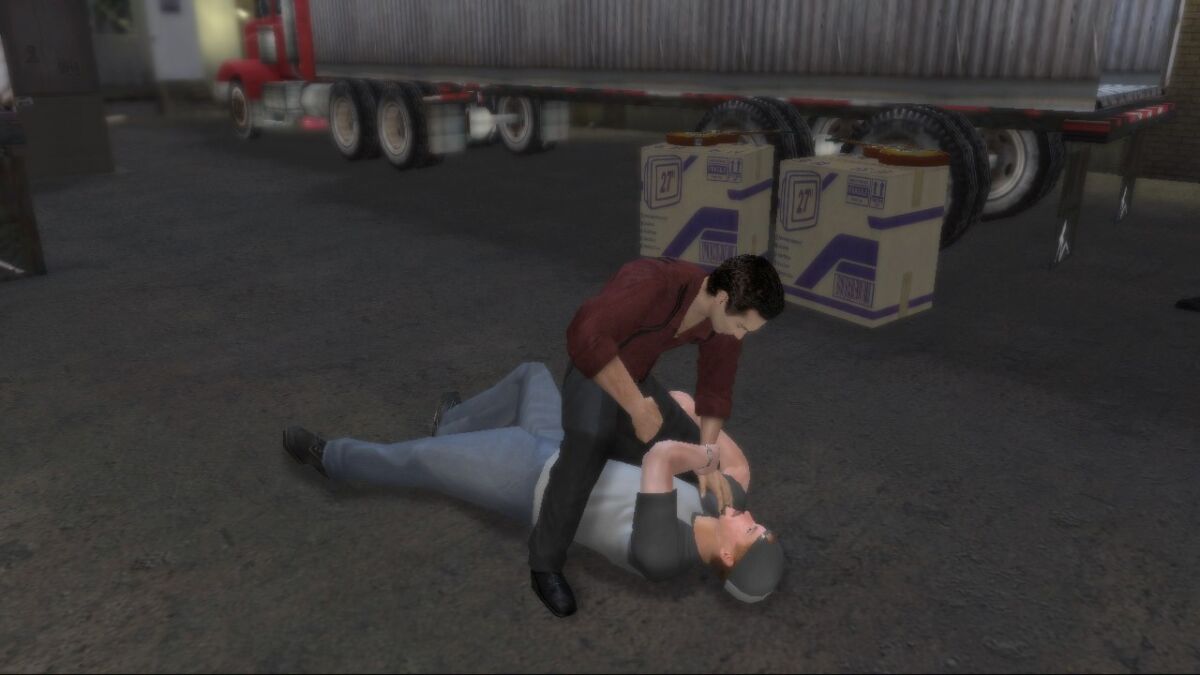
The key issue with most gangster adaptations is that they usually completely miss the point of their source material, turning nuanced pieces of social commentary into masturbatory aids for deluded wannabe tough guys and shut-ins with posters of Tony Soprano on their wall. EA’s adaptation of The Godfather might have been a diverting romp around the criminal underworld, but it was hardly the sort of grand narrative epic to match the film or book which inspired it. Similarly, although HBO’s The Sopranos might be regarded as some of the finest serialised storytelling ever seen on the small screen, most of those subtle nuances regarding masculinity, morality and cyclical patterns of violence are lost when you’re forced on endless missions that revolve around beating up gangsters, innocent members of the public or anyone who happens to be wearing trousers.
Road to Respect feels as though it were made by 14-years olds working through their own adolescent issues by writing gangster fan-fiction in their geography workbooks. ‘Yeah, if I were in the Mafia, I’d be beating up pussies and poundin’ broads. Mrs. Phillips wouldn’t give me a D in Physics ever again.’ Your protagonist, Joey, an Italian-American character straight from the lazy writers’ book of offensive ethnic caricatures, has the IQ of a lampshade and the likeability of a burst cyst. Joey spends his time pulverising into submission 90% of the citizens he happens to meet on his merry travels, a trait which seems only to endear him to the game’s female characters, most of whom have chests that can be seen from space and fawn over him like he were a knight errant ridding their village of plague, rather than a twattish thug who experiences all thought, emotion and sensation through his knuckles.
Then there’s the usual gripes that go along with a half-baked cash-grab posing as a GTA knockoff. A boring, oversimple and stodgy combat system, horrible gunplay, grimy graphics and an unsettling tone of boorish misogyny which seems in no way to be intentional or ironic all render proceedings distinctly miserable. No wonder David Chase, the HBO series’ showrunner, wanted to be distanced from Road to Respect. Road to absolute crap.
READ MORE: 10 Movie Tie-In Games That Went Off The Deep End
Some of the coverage you find on Cultured Vultures contains affiliate links, which provide us with small commissions based on purchases made from visiting our site. We cover gaming news, movie reviews, wrestling and much more.


